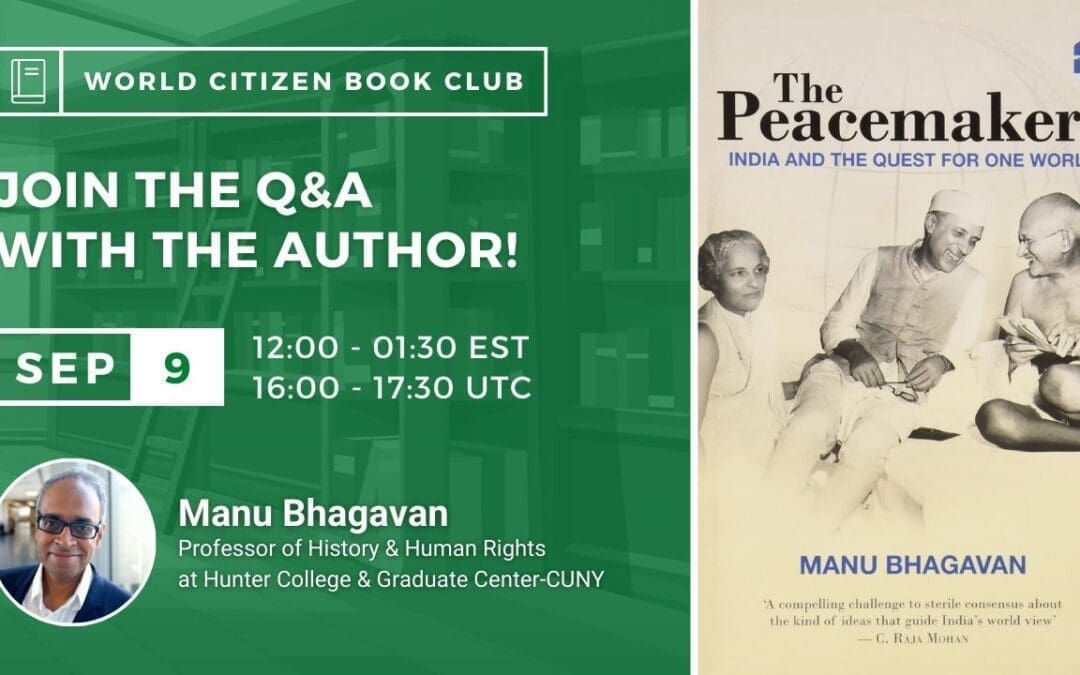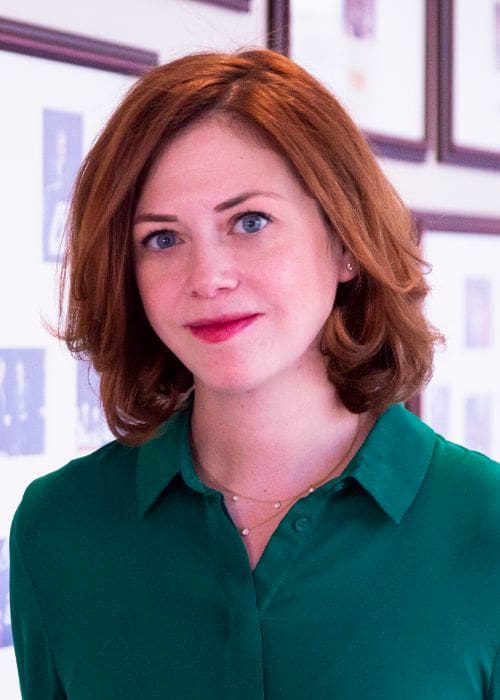
by Lawrence Wittner | Nov 22, 2024 | Global Cooperation
The latest rollout of the hyper-nationalist “America First” policy underscores the world’s long-term slide toward catastrophe.
Within nations, when conflicts inevitably erupt, there are laws, as well as police, courts, and governments that enforce the laws.
On the global level, however, governance is quite limited. The UN Security Council, responsible under the UN Charter for maintaining international peace and security, is frequently hamstrung by the veto, which the five great powers of 1945 insisted upon according to themselves. By this April, it had been employed 321 times. Although the International Court of Justice and the International Criminal Court deliver legally binding judgments, based on international law, such judgments are not always obeyed. The UN General Assembly votes on key international issues as well, but such votes are merely advisory. Consequently, these international organizations issue laudable statements, while the most powerful nations all too frequently defy them and go on their merry, marauding way.
The Russian government is currently continuing its massive military invasion of Ukraine and annexing its territory while ignoring the demands of the UN General Assembly and the International Court of Justice to end Russia’s aggression and withdraw from Ukraine. Similarly, the Israeli government ignores the demands of these world organizations to end its brutal war upon and occupation of Palestine.
From the overwhelming votes in the UN General Assembly to condemn the Russian and Israeli invasions, we can see what most of the world’s nations want done to address these terrible situations. But there is no implementation of their demand to respect international law―law that lacks effective international enforcement.
Over the course of human history, this international lawlessness has contributed to a might-makes-right approach to world affairs, in which militarily powerful nations play the dominant role. Naturally, then, nations have gravitated toward military buildups, making some very powerful, indeed.
According to the Stockholm International Peace Research Institute, the top military spenders in 2023 (the latest year for which figures are available) are the United States ($916 billion), China ($296 billion), Russia ($109 billion), and India ($84 billion). But others―Israel ($28 billion) and North Korea (amount unknown)―also rank among the big-time military spenders. All told, the nations of the world devoted at least $2,443 billion to war and preparations for war, an increase over the previous year of nearly 7 percent.
Military spending is not the only way to measure militarism. The Global Peace Index 2024, compiled by the Institute for Economics and Peace, used the level of societal safety and security, the extent of ongoing domestic and international conflict, and the degree of militarization to examine 163 independent nations and territories. Not surprisingly, the major military powers ranked low on the scale of peacefulness, including China (88th), India (116th), the United States (132nd), North Korea (152nd), Israel (155th), and Russia (157th).
By contrast to these military behemoths―possessing the mightiest military forces in world history, including arsenals of nuclear weapons―the United Nations has remained a relatively anemic organization, speaking truth but lacking power.
Sometimes, the major military powers cope with the explosive global situation by making deals with one another―although such deals rarely create the basis for a peaceful world. For example, the August 23, 1939 Molotov-Ribbentrop Pact (better known as the Nazi-Soviet Pact) provided for détente between Nazi Germany and the Soviet Union, two highly-militarized nations that had previously been at odds. In this secret protocol, Hitler and Stalin agreed to share Poland and give Lithuania, Latvia, Estonia, Finland, and other East European territories to the Soviet Union. On September 1, Germany invaded western Poland, thereby beginning World War II. Soon thereafter, the Soviet Union took action to seize its share of the spoils. As early as July 1940, however, the German High Command began planning its invasion of the Soviet Union, which occurred the following June, ending this cozy arrangement.
On other occasions, major military powers have formed alliances. Wary of a military attack by their rivals or eager to bolster their strength for a military attack upon them, these “great powers” have enhanced their military might by creating military alliances with weaker nations. The weaker nations, for their part, sometimes seek alliances with the militarily powerful to guarantee their own security.
But alliances, too, have provided a shaky basis for maintaining international peace. During the Cold War, the North Atlantic Treaty Organization (dominated by the United States) and the Warsaw Pact (dominated by the Soviet Union) engaged in remarkably dangerous nuclear confrontations. Furthermore, both alliances experienced serious internal convulsions. In 1956, Hungary withdrew from the Warsaw Pact, leading to a Soviet invasion that slaughtered 2,500 Hungarians and sent 200,000 fleeing abroad.
Today, the traditional system of every-nation-for-itself is leading to disaster. There are currently 56 active military conflicts in the world, the largest number since the end of World War II. These conflicts are also becoming more internationalized, with 92 nations engaged in a conflict beyond their borders. According to the Global Peace Index, “there has been a significant rise in both conflicts and battle deaths in the past two decades, with battle deaths reaching a thirty-year high.”
Overarching this grim toll lies a revived nuclear arms race, increasingly likely to erupt into a nuclear war that will annihilate most life on Earth.
In this situation, there is a desperate need for effective global governance. Or, to put things differently, the world needs a stronger United Nations―strong enough to resolve conflicts among nations and, thereby, maintain international peace and security.
The task of strengthening global governance is difficult, but not impossible. There are ways to limit the use of the veto in the UN Security Council (as championed by many nations), transfer security issues to the UN General Assembly (where there is majority rule and no veto), and increase the jurisdiction of international judicial bodies. It’s also necessary and possible to provide the UN with an independent source of income to fund an expanded range of activities.
The time has come to transform the United Nations into a federation of nations that can effectively uphold international law―a government for the world. With such a government, we would have a much better chance of restraining outlaw nations and averting the nuclear catastrophe that looms before us.

by Citizens for Global Solutions | Jun 3, 2023
Meet the author, Manu Bhagavan, and join the discussion and special Q&A on the second Saturday of the month from September – December, we will be discussing his book, Peacemakers: India and the Quest for One World .
Dates (2nd Saturday): Saturday, September 9 , Saturday, October 14, Saturday, November 11, and Saturday, December 9
Time: 12:00 -1:30 pm Eastern Time | 1600 – 1730 UTC
Where: Zoom
Cost: FREE and open to the public
Register
Set against the backdrop of World War II, Indian independence and decolonization, and the Cold War, this “splendid…stunning…hugely engrossing” first-of-its-kind international history, based on seven years of research in twenty archives on three continents, tells the story of India’s quest to build consensus around the framework of “human rights,” to bridge the divisions between East and West, between capitalist and communist, and to create “one world” free of empire, poverty, exploitation, and war.
This book is the story of India’s quest to create a common destiny for all people across the world based on the concept of human rights. In the years leading up to its independence from Great Britain, and more than a decade after, in a world torn asunder by unchecked colonial expansions and two world wars, Jawaharlal Nehru had a radical vision: bridging the ideological differences of the East and the West, healing the growing rift between capitalist and communist, and creating ‘One World’ that would be free of empire, exploitation and war. Madame Vijaya Lakshmi Pandit, Nehru’s sister, would lead the fight in and through the United Nations to turn all this into a reality. An electric orator and outstanding diplomat, she travelled across continents speaking in the voice of the oppressed and garnering support for her cause. The aim was to lay the foundation for global governance that would check uncontrolled state power, address the question of minorities and migrant peoples, and put an end to endemic poverty. Mahatma Gandhi’s legacy would go global.
Manu Bhagavan is Professor of History, Human Rights, and Public Policy at Hunter College and the Graduate Center-The City University of New York, where he is also Senior Fellow at the Ralph Bunche Institute for International Studies. He is author or editor of seven books, including the critically-acclaimed The Peacemakers (HarperCollins India 2012, Palgrave Macmillan 2013) and India and the Cold War (Penguin India and UNC Press, 2019). His newest book, forthcoming in December 2023 from Penguin/Viking India, is a biography of Madame Vijaya Lakshmi Pandit, one of the most important and celebrated women of the twentieth century. Manu is the recipient of a 2006 fellowship from the American Council of Learned Societies and more recently has received Hunter’s 2023 Presidential Award for Excellence in Scholarship. He has been interviewed for several documentaries and was featured in a skit on the Not the White House Correspondent’s Dinner, part of the satirical television program Full Frontal with Samantha Bee. In 2023, he also served as a judge for the PEN Literary Awards in the category of biography. Manu appears regularly in the media to discuss current affairs. Follow @ManuBhagavan on Twitter!

by Citizens for Global Solutions | Jun 3, 2023
On the second Saturday of the month from September – December, we will be discussing the book, Peacemakers: India and the Quest for One World . Meet the author, Manu Bhagavan, and join the discussion and special Q&A!
Dates (2nd Saturday): Saturday, September 9, Saturday, October 14, Saturday, November 11, and Saturday, December 9
Time: 12:00 -1:30 pm Eastern Time | 1600 – 1730 UTC
Where: Zoom
Cost: FREE and open to the public
Register
Set against the backdrop of World War II, Indian independence and decolonization, and the Cold War, this “splendid…stunning…hugely engrossing” first-of-its-kind international history, based on seven years of research in twenty archives on three continents, tells the story of India’s quest to build consensus around the framework of “human rights,” to bridge the divisions between East and West, between capitalist and communist, and to create “one world” free of empire, poverty, exploitation, and war.
This book is the story of India’s quest to create a common destiny for all people across the world based on the concept of human rights. In the years leading up to its independence from Great Britain, and more than a decade after, in a world torn asunder by unchecked colonial expansions and two world wars, Jawaharlal Nehru had a radical vision: bridging the ideological differences of the East and the West, healing the growing rift between capitalist and communist, and creating ‘One World’ that would be free of empire, exploitation and war. Madame Vijaya Lakshmi Pandit, Nehru’s sister, would lead the fight in and through the United Nations to turn all this into a reality. An electric orator and outstanding diplomat, she travelled across continents speaking in the voice of the oppressed and garnering support for her cause. The aim was to lay the foundation for global governance that would check uncontrolled state power, address the question of minorities and migrant peoples, and put an end to endemic poverty. Mahatma Gandhi’s legacy would go global.
Manu Bhagavan is Professor of History, Human Rights, and Public Policy at Hunter College and the Graduate Center-The City University of New York, where he is also Senior Fellow at the Ralph Bunche Institute for International Studies. He is author or editor of seven books, including the critically-acclaimed The Peacemakers (HarperCollins India 2012, Palgrave Macmillan 2013) and India and the Cold War (Penguin India and UNC Press, 2019). His newest book, forthcoming in December 2023 from Penguin/Viking India, is a biography of Madame Vijaya Lakshmi Pandit, one of the most important and celebrated women of the twentieth century. Manu is the recipient of a 2006 fellowship from the American Council of Learned Societies and more recently has received Hunter’s 2023 Presidential Award for Excellence in Scholarship. He has been interviewed for several documentaries and was featured in a skit on the Not the White House Correspondent’s Dinner, part of the satirical television program Full Frontal with Samantha Bee. In 2023, he also served as a judge for the PEN Literary Awards in the category of biography. Manu appears regularly in the media to discuss current affairs. Follow @ManuBhagavan on Twitter!

by Citizens for Global Solutions | Jun 3, 2023
On the second Saturday of the month from September – December, we will be discussing the book, Peacemakers: India and the Quest for One World . Meet the author, Manu Bhagavan, and join the discussion and special Q&A!
Dates (2nd Saturday): Saturday, September 9 , Saturday, October 14, Saturday, November 11, and Saturday, December 9
Time: 12:00 -1:30 pm Eastern Time | 1600 – 1730 UTC
Where: Zoom
Cost: FREE and open to the public
Register
Set against the backdrop of World War II, Indian independence and decolonization, and the Cold War, this “splendid…stunning…hugely engrossing” first-of-its-kind international history, based on seven years of research in twenty archives on three continents, tells the story of India’s quest to build consensus around the framework of “human rights,” to bridge the divisions between East and West, between capitalist and communist, and to create “one world” free of empire, poverty, exploitation, and war.
This book is the story of India’s quest to create a common destiny for all people across the world based on the concept of human rights. In the years leading up to its independence from Great Britain, and more than a decade after, in a world torn asunder by unchecked colonial expansions and two world wars, Jawaharlal Nehru had a radical vision: bridging the ideological differences of the East and the West, healing the growing rift between capitalist and communist, and creating ‘One World’ that would be free of empire, exploitation and war. Madame Vijaya Lakshmi Pandit, Nehru’s sister, would lead the fight in and through the United Nations to turn all this into a reality. An electric orator and outstanding diplomat, she travelled across continents speaking in the voice of the oppressed and garnering support for her cause. The aim was to lay the foundation for global governance that would check uncontrolled state power, address the question of minorities and migrant peoples, and put an end to endemic poverty. Mahatma Gandhi’s legacy would go global.
Manu Bhagavan is Professor of History, Human Rights, and Public Policy at Hunter College and the Graduate Center-The City University of New York, where he is also Senior Fellow at the Ralph Bunche Institute for International Studies. He is author or editor of seven books, including the critically-acclaimed The Peacemakers (HarperCollins India 2012, Palgrave Macmillan 2013) and India and the Cold War (Penguin India and UNC Press, 2019). His newest book, forthcoming in December 2023 from Penguin/Viking India, is a biography of Madame Vijaya Lakshmi Pandit, one of the most important and celebrated women of the twentieth century. Manu is the recipient of a 2006 fellowship from the American Council of Learned Societies and more recently has received Hunter’s 2023 Presidential Award for Excellence in Scholarship. He has been interviewed for several documentaries and was featured in a skit on the Not the White House Correspondent’s Dinner, part of the satirical television program Full Frontal with Samantha Bee. In 2023, he also served as a judge for the PEN Literary Awards in the category of biography. Manu appears regularly in the media to discuss current affairs. Follow @ManuBhagavan on Twitter!

by Citizens for Global Solutions | Jun 3, 2023
Dates (2nd Saturday): Saturday, September 9 , Saturday, October 14, Saturday, November 11, and Saturday, December 9
Time: 12:00 -1:30 pm Eastern Time | 1600 – 1730 UTC
Where: Zoom
Cost: FREE and open to the public
Register
Join us on the second Saturday of the month from September – December, we will be discussing the book, Peacemakers: India and the Quest for One World. Meet the author, Manu Bhagavan, and join the discussion and special Q&A!
Set against the backdrop of World War II, Indian independence and decolonization, and the Cold War, this “splendid…stunning…hugely engrossing” first-of-its-kind international history, based on seven years of research in twenty archives on three continents, tells the story of India’s quest to build consensus around the framework of “human rights,” to bridge the divisions between East and West, between capitalist and communist, and to create “one world” free of empire, poverty, exploitation, and war.
This book is the story of India’s quest to create a common destiny for all people across the world based on the concept of human rights. In the years leading up to its independence from Great Britain, and more than a decade after, in a world torn asunder by unchecked colonial expansions and two world wars, Jawaharlal Nehru had a radical vision: bridging the ideological differences of the East and the West, healing the growing rift between capitalist and communist, and creating ‘One World’ that would be free of empire, exploitation and war. Madame Vijaya Lakshmi Pandit, Nehru’s sister, would lead the fight in and through the United Nations to turn all this into a reality. An electric orator and outstanding diplomat, she travelled across continents speaking in the voice of the oppressed and garnering support for her cause. The aim was to lay the foundation for global governance that would check uncontrolled state power, address the question of minorities and migrant peoples, and put an end to endemic poverty. Mahatma Gandhi’s legacy would go global.
Manu Bhagavan is Professor of History, Human Rights, and Public Policy at Hunter College and the Graduate Center-The City University of New York, where he is also Senior Fellow at the Ralph Bunche Institute for International Studies. He is author or editor of seven books, including the critically-acclaimed The Peacemakers (HarperCollins India 2012, Palgrave Macmillan 2013) and India and the Cold War (Penguin India and UNC Press, 2019). His newest book, forthcoming in December 2023 from Penguin/Viking India, is a biography of Madame Vijaya Lakshmi Pandit, one of the most important and celebrated women of the twentieth century. Manu is the recipient of a 2006 fellowship from the American Council of Learned Societies and more recently has received Hunter’s 2023 Presidential Award for Excellence in Scholarship. He has been interviewed for several documentaries and was featured in a skit on the Not the White House Correspondent’s Dinner, part of the satirical television program Full Frontal with Samantha Bee. In 2023, he also served as a judge for the PEN Literary Awards in the category of biography. Manu appears regularly in the media to discuss current affairs. Follow @ManuBhagavan on Twitter!



































